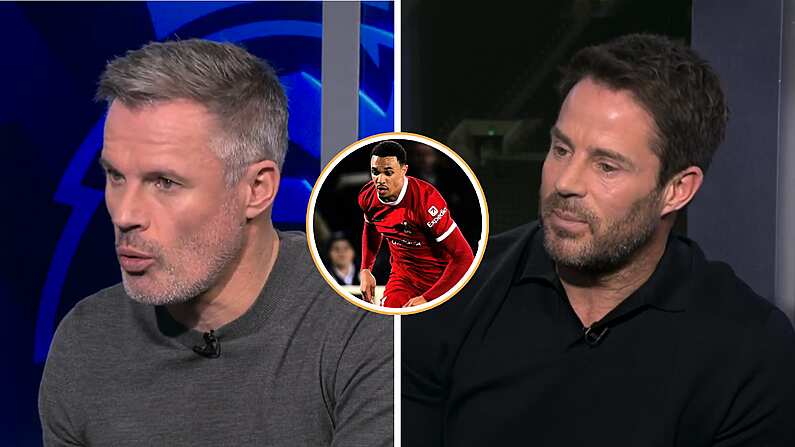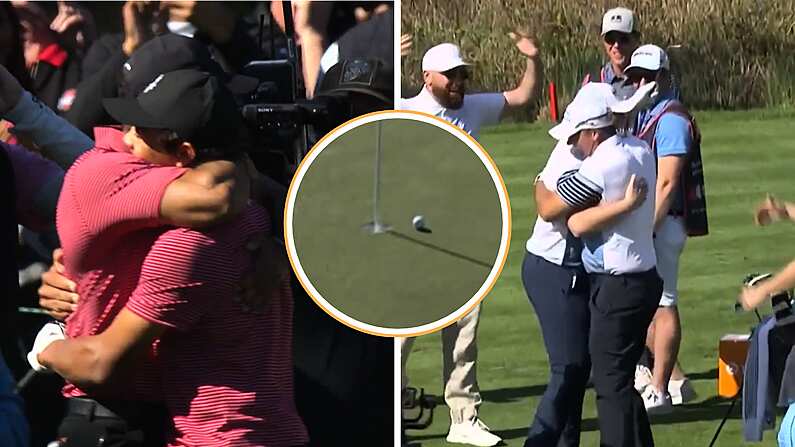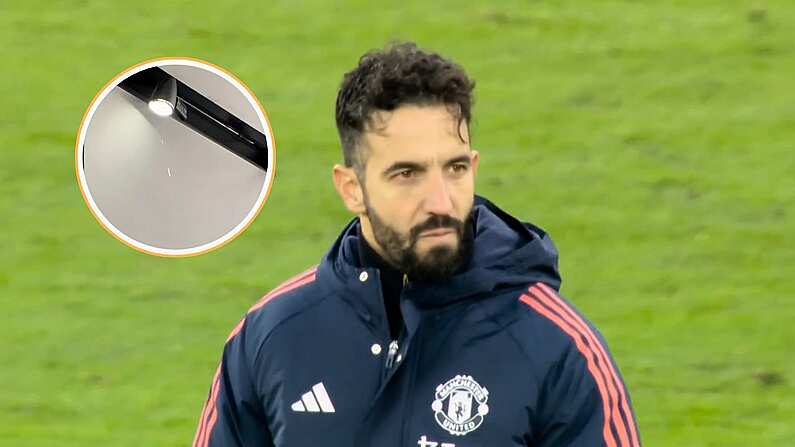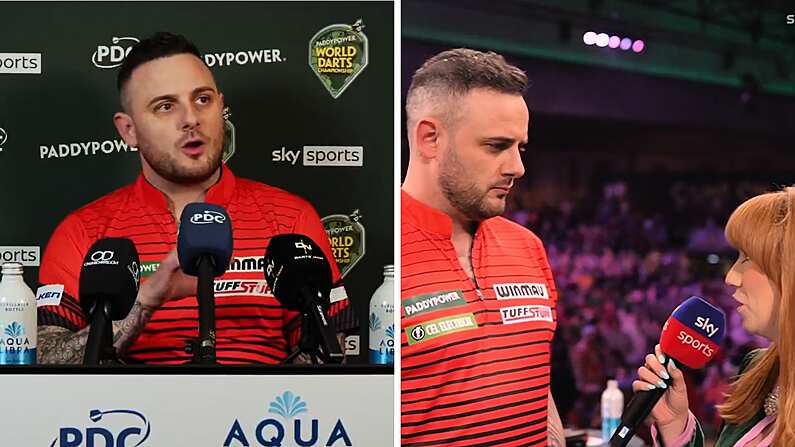If an author's first duty is to let his country down, then a football pundit's first job is to be let down by his football team. While this is an easy thing to adjust to for, say, Steve Claridge, it is far more difficult for Jamie Carragher and Gary Neville.
Manchester United and Liverpool are the two biggest teams in England, by which we mean they are the clubs that attract the highest level of sneer, scorn and schadenfreude when they threaten anything approaching calamity. Both were in action yesterday, and contrived to give us Sky's first Slapstick Sunday.
Looking gravely on throughout were Jamie Carragher and Gary Neville. It seems a compelling form of torture for Sky to have such sturdy club men to offer an immediate response to the crumbling edifice they had spent decades building, but for viewers, the operative word in that sentence is compelling.
Sky are doing the football production equivalent of asking two men to watch their houses burn, handing them a hose to put it out,only to turn off the tap.
Both Carragher and Neville were synonymous with the kind of stolid, square-jaw type of English football that turned European industry into a cottage industry in the latter half of the last decade, and now they have to confront their successors bumbling about incoherently.
Carragher was first-up, reacting to a peculiarly Liverpool collapse. If Klopp's side has turned a corner this season, then the defeat to Bournemouth showed that they have made the mistake of turning a series of them, and thus ended up where they began.
This was Liverpool writ large: the palpable comfort of the first-half disintegrating amid a few balls slung in their box when the realisation set in that the players had something to lose. 3-1 up with fourteen minutes to go, Liverpool lost 4-3. It was blighted by the usual shortcomings: a panicked defensive line ending up standing a couple of yards from a hapless goalkeeper, all in thrall to the higher power of their relentless limitations.
And after the game, Sky cut back to Carragher in studio, sitting beside a gleeful Leon Osman, who accepted his new 'I played for Everton, so I'm delighted Liverpool were crap' personality with great efficiency.
There sat Carragher, straight-backed as usual, commas of Mignolet/Karius-induced stress around his eyes; brooding as he silently chose his words like a soldier grimly selecting weapons ahead of war.
Carragher's greatest skill as a pundit is eloquence and incision in the face of disgust, and this was another presidential performance. He was scathing about Liverpool's capitulation, and also about Loris Karius:
It's a message to the rest of the Premier League that if you put Liverpool under pressure, they can't cope with it.
That's nowhere near good enough from that goalkeeper. And this goalkeeper has yet to convince me in any game that he is of the required standard. Yeah, it's not a bad effort, but it's not right in the corner, so he's got to save that.
And as I said, seven or eight games he's played, and it's early days, who's to know how he'll do over the next two or three years, but he has got to improve. He hasn't done anything yet in those games that has impressed me.
Fans and viewers perceive bias among pundits and commentators before any other characteristic, and Carragher's dealing with Liverpool on Sky is an example of how it should be done. Firstly, he has the benefit of being a viewer: he is cognisant of everybody knowing he is a Liverpool fan, so he is unafraid to say so on air.
The praise is never over-indulged, while his criticism rarely feels gratuitous, it doesn't come across that he is over-compensating for the viewers knowledge that he loves Liverpool. There is an added bit of passion in his dissection of Liverpool's failings, however, that make for compelling viewing.
As Liverpool plumbed depths, they found safety in numbers: Manchester United contrived to blow another lead in comic fashion, this time against Everton.
1-0 up against a very poor Everton side, Jose Mourinho decided to shut up shop by replacing Henrikh Mkhitaryan with Marouane Fellaini. Neville was on commentary, and ever the rationalist, explained the decision in reference to Mourinho's desires to quell any Everton aerial bombardment. United fans braced themselves, however, as they realise that Fellaini is increasingly less a midfielder than an emblem of inadequacy; a shaggy-haired punishment visited upon Manchester United fans for sins of the past.
A couple of minutes later, Fellaini contrived to give away a penalty. What followed was Neville's greatest piece of commentary since the Torres Squeal.
It's garbage from him.
To stick your leg out there, from such an experienced player, it's pathetic really. He was brought on to see the game out. No composure....It was obvious what was coming, you could see it from a mile off.
The exasperation in Neville's voice was palpable, and the version of the United fan's reaction suitable for broadcast. Sometimes, when commentating on United, Neville comes across as trying to be particularly harsh on United, in a bid to offset his obvious sentiments.
He is far better, however, when he displays that passion for United, as he did during Fellaini's latest dazzling display of eejitry. A little bias does not go amiss: Neville is too intelligent to be dragged into mind-numbingly blinkered debates.
Both sat beside each other in studio afterward: looking at each other, safe in the knowledge that they are the best voices in English football, their knowledge, eloquence and above all passion corralled around the audacious limits of their teams.
Shattered By The Bell
Sky's hilarious aversion to swearing reared its head again last week, as Andy Burton had a meltdown upon David Haye's use of the word 'bellend', with the reporter ending up quivering the word 'apologise', dumbstruck. It reminded this column of the most famous use of bellend in sport.
Back in 2003, Man City polled their supporters as to which legendary player should have a stand behind one of the Maine Road goals named in his honour. Fans picked Colin Bell. With City facing the prospect of trying to score into the Colin Bell End, they reneged.
A decade later, they signed Willy Caballero.










